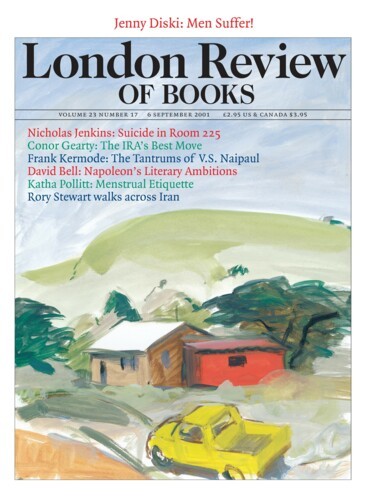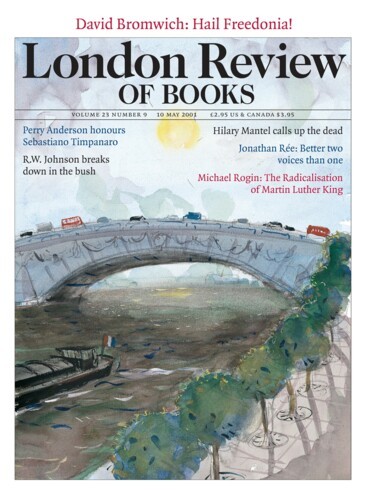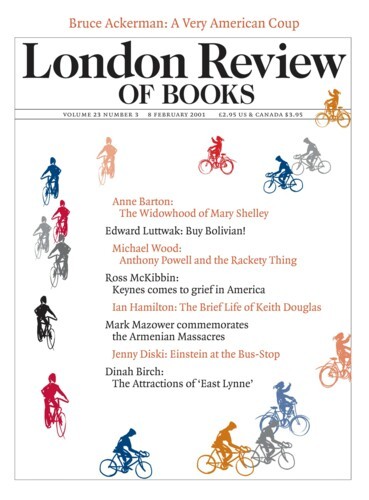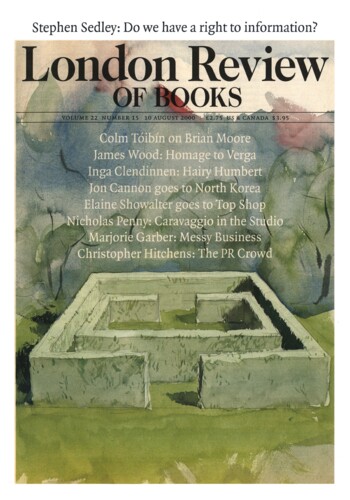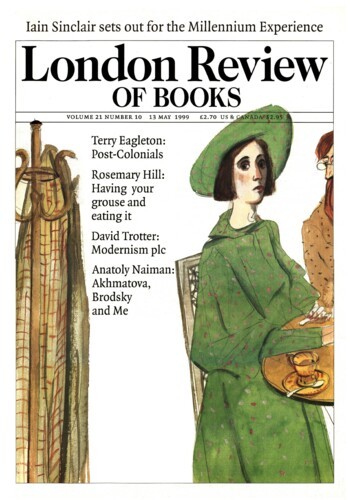Never Seen a Violet: Victorian men and girls
Dinah Birch, 6 September 2001
Freud takes it for granted that masculinity is the defining human condition, that all children begin life by imagining themselves as little men. When girls get round to noticing their lack of a penis and have to abandon fantasies of maleness, they feel envy and a lasting sense of alienation. Catherine Robson acknowledges and dismisses Freud and Lacan as forming ‘part of the continuing...
